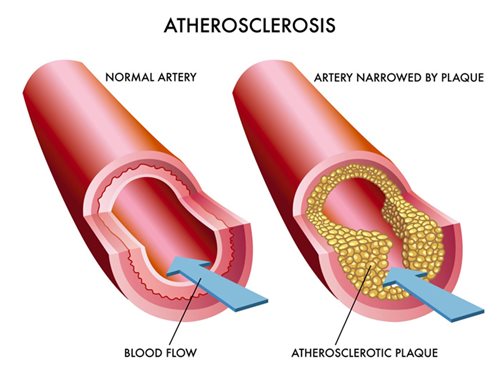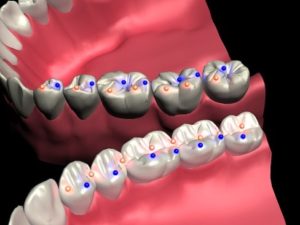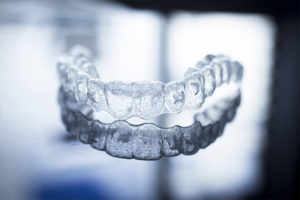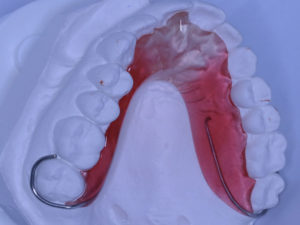In recent years, there have been increasing evidence linking cardiovascular events such as a heart attack or a stroke with gum and bone inflammation (gingivitis and periodontitis).
Without regular hygiene appointments, the plaque and/or calculus that gather on the surface on your teeth cause a chronic inflammatory response from your body. The inflammation shows up as gums that are red and puffy, and also bleed easily with brushing or flossing. If not resolved by regular hygiene, gingivitis extends deeper along the neck of the tooth to underneath the gum pockets. This in turn leads to an inflammatory response from the supporting bone structure, resulting in bone loss (periodontitis).
It has long been suspected that the inflammation from the mouth is correlated with inflammation in other parts of the body, especially your cardiovascular system. A recent scientific study (1) published April 2017 shows that certain high risk pathogens involved in periodontitis can contribute to atherosclerosis (plaque buildup inside blood vessels). Aside from arteries in the heart, it can also affect the blood flow to the brain, arms, legs, pelvis, and kidneys. To further the correlation with cardiovascular health, another recent paper (2) published in the STROKE journal in January 2018 shows that there is a two to three-fold increased risk of stroke in patients with periodontitis.

In light of the overwhelming evidence, it is important to keep up with regular oral hygiene routine at home and also regular visits to your dentists and hygienists! Your life might depend on it!
References:
- Bale BF, Doneen AL, Vigerust DJ. High-risk periodontal pathogens contribute to the pathogenesis of atherosclerosis [published online November 29, 2016]. Postgrad Med J. doi: 10.1136/postgradmedj-2016-134279.
- Sen S, Giamberardino LD, Moss K et al. Periodontal disease, regular dental care use, and incident ischemic stroke. Stroke 2018; 49(2): 355-362; Epub 2018 Jan 15.





